
Grace Forrest is one of our 6 favourite, inspiring women helping affect real change
- Culture
6 Inspiring women on equality and climate
Why women’s rights has everything to do with climate change
By Jenny Ringland
I look forward to International Women’s Day every year, with a building crescendo of passion, anger and determination to create a world that is just, equal and fair for all living things. In recent years my drive to create meaningful change has grown thanks to my desire to create a world of fairness and happiness for my three young daughters, who already know the benefits of generations of feminists who came before them.
This year we are using IWD as a platform to demonstrate that women’s rights have everything to do with climate change, from the fact we as women are more likely to spearhead climate sustainability focused community movements, while also being the most at risk of the effects of climate change. We spoke to five women we admire in the sustainability space to find out what this year’s #IWD them of #breakthebias means to them, and how we can keep moving forward.
GRACE FORREST
UN Goodwill Ambassador, founder of Walk free Foundation
Grace Forrest’s vision is to end modern day slavery which affects over 40 million people globally, and to get there she founded Walk Free, an international human rights organisation headquartered in Perth, Western Australia.
Together with the all-female Walk Free team, she is developing the Global Slavery Index, the world’s leading data set on measuring and understanding modern slavery – informing international legislation.
“If your feminism doesn’t include the people who make your clothes, it’s not feminism. We need to extend our activism well beyond social media and bring it into our everyday lives. The state of the world can feel incredibly overwhelming, so if you don’t know where to start – start with the clothes on your back,” Grace says.
“With 1 in 130 women and girls on earth living in modern slavery, there has never been a more urgent time for us to build true and enduring solidarity. We can start by raising our voices and demanding greater transparency from brands or start making more ethically aligned choices. We have the power to break the bias for all women.”

Prisca Ongonga-Daehn
Founder, Baresop
Disenchanted by the waste the personal care industry creates, Prisca’s start-up Baresop is part of the waterless beauty revolution, creating products using an add water to concentrate concept, in packaging made from recycled waste that’s either compostable or recyclable.
“Break the bias in climate change is a call to reverse the thinking that a single person can’t make a difference. The thinking that individual actions can’t solve global warming. That personal actions to reverse climate change are a pointless drop in the ocean when set against the huge systematic changes that are required to prevent devastating global warming,’’ Prisca says.
“When as individuals we make a difference and we need to feel empowered to take action.”
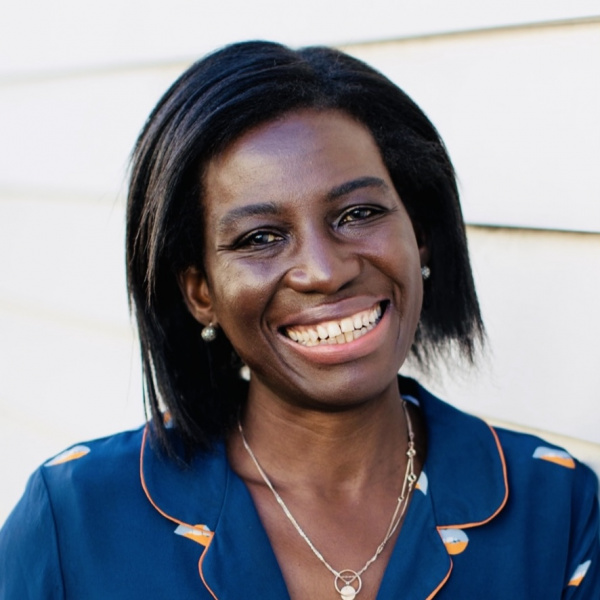
Prisca Ongonga-Daehn, founder of Baresop
Clare Press
Sustainable fashion expert and activist, podcaster & author
Clare Press is the founder of Wardrobe Crisis, a sustainable fashion podcast and online course platform. She is also the author of Rise & Resist, How to Change the World.
“This year’s IWD theme is a timely call to action – we need to recognise that the playing field is not level. Sustainability won’t work if it’s just about switching trainer brands. It needs to be about systemic change,’’ she says.
“Name a famous climate leader who isn’t Greta. Have you noticed, just in your own life, how it’s so often women who organise climate protests and community responses to things like extreme weather events, while the scientists and policymakers tend to be men?
“Maybe it’s that panel discussion you watched on the albedo effect, or the bloke in charge of the government. There’s a reason for this. The patriarchy.
“Of course there are notable exceptions, for example, Vandana Shiva, Christiana Figueres, Patricia Espinosa and Maye Boeve. And people like Greta and young intersectional environmentalists like Leah Thomas and Mikaela Loach, and here in Australia Varsha Yajman, are inspiring a whole new generation to take on the fight. Things are changing.
“In majority world countries where incomes are lower across the board, women have it tougher still. They are the worst affected by climate change – and least empowered to address it.
“The UN is very clear on this: ‘Gender inequality and social exclusion continue to increase the negative effects of unsustainable and destructive environmental management on women and girls.’ How can we address it? By dismantling the patriarchy, capitalism and colonialism, and building, brick-by-brick, something new in its place that centres social and environmental justice for all. I didn’t say it would be easy! But that’s the work.”
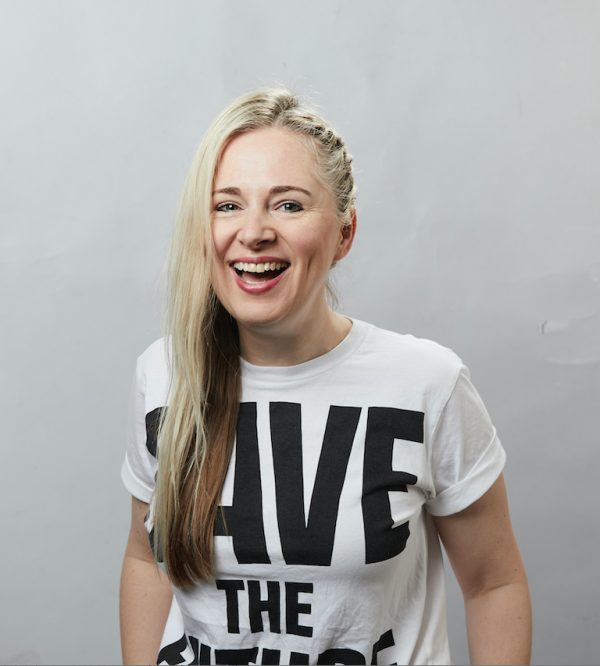
Clare Press, sustainable fashion activist, podcaster and author
Kirsty Nash
Theme Lead in Sustainable Futures and Planetary Health at the Centre for Marine Socioecology in Hobart
In 2021 Kirsty Nash was awarded a L’Oreal-UNESCO For Women in Science Fellowship for her work that aims to unravel how environmental change will affect the availability and transport of nutrients through food webs.
“Tackling the climate crisis is a complex challenge, we need initiatives that span scales from local to global and that cover social, economic, environmental and technological approaches,’’ Kirsty says.
“Gender inequality means we are currently only making the most of half our skilled, innovative thinkers to develop, lead and support these initiatives.
“There is amazing strength in diversity, it brings together different perspectives, skills, knowledge and backgrounds to analyse and address problems.
“Research has shown that those countries with lower gender inequality tend to have higher levels of action against climate change; we need to eliminate gender inequality so we can harness all the knowledge and skills available to us to mitigate and adapt to climate change.
“It is also important to consider that women tend to be more vulnerable to the climate crisis, this is because gender inequality may prevent women from accessing the necessary resources to adapt to climate change.
“Tackling gender inequality and providing women with the power and agency to be full participants in building a sustainable future provides us with a powerful mechanism to improve outcomes of climate change.”
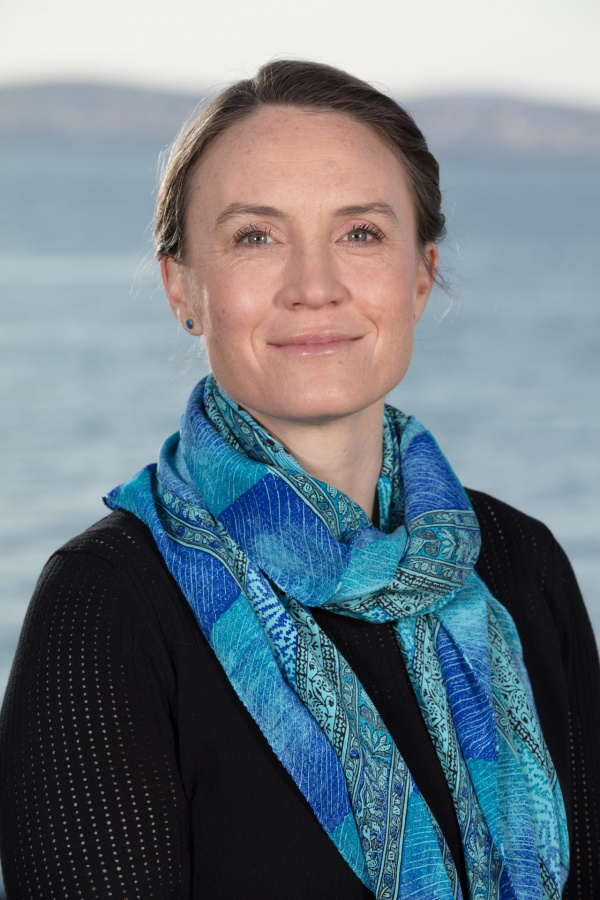
Kirsty Nash, Theme Lead in Sustainable Futures and Planetary Health at the Centre for Marine Socioecology in Hobart
Jessica Kulakowski
Founder, Rugs For Good
Jessica’s Rugs For Good vision is: changing lives one rug at a time. And it’s done via their partner charity The Shanti Bhavan Children’s Project, which provides children with 17 years of educational intervention, from the child’s first day of school, through their university studies, up until they land their first job.
“ I get to witness first-hand how much our fellow Aussies want to get behind a good cause. It’s people making purchases with their hearts that makes all of this possible. People are kind (it’s true!) and will make the kinder choice where possible. Rugs For Good has given me faith in human beings and hope for the future,’’ Jessica says.
In terms of IWD and #breakthebias Jessica says we need to be active in interrupting the status quo.
“For those of us in more privileged positions, it means we provide a hand up to those in greater need than us. We can each do this in our own unique way, from a grassroots standing point or with a top down approach. Collectively we can create change but no one can do it alone,’’ she says.
“In connection to my work the monsoons are arriving earlier and staying for longer and this has a devastating economic impact on the rug maker’s lives. There is a direct impact of climate change as the economic hardship permeates throughout the lives of the weavers, their families and communities.
“Ultimately, the economic and social flow-on effects of a change in the seasons are huge and create all sorts of inequalities. When economic hardship and biased cultural gender norms are combined, then women in these crises are the most affected. I’m not sure that we can’t address the climate crisis while we have gender inequality, however, if we don’t address the climate crisis, then the inequalities will continue to exist and women and girls will experience the worst of it.”
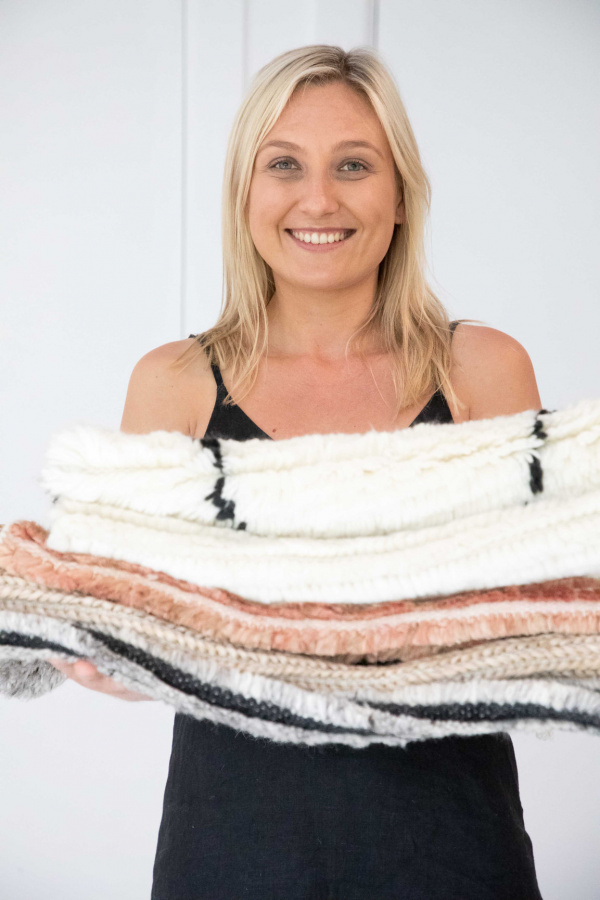
Jessica Kulakowski, founder of Rugs For Good
Nicole Trunfio
Model and entrepreneur
Nicole Trunfio is an Australian model and entrepreneur who says her passion for sustainability and her understanding of the intersection of the environment and women’s rights drives the decisions she makes in business and for her family.
“Everything I stand for and everything I do is for women, and I love to empower and inspire women to achieve their best no matter the situation they’re in. I am blessed to surround myself with such amazing women and truly believe that there’s power in numbers. Together, we learn, together, we support each other and together, we are fierce, ’’ she says.
“This is really the core purpose of my three businesses: BUMPSUIT, ERTH Jewellery and ERTH Swim and it formed the basis of my decision to partner with INIKA Organic which is the highest certified organic and natural makeup company in the world. enhances natural beauty.”
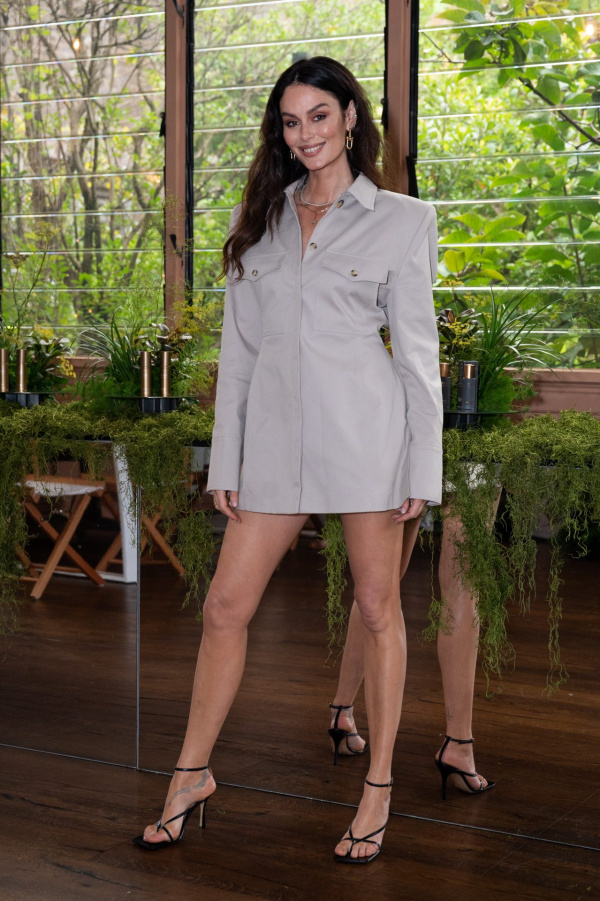
Nicole Trunfio’s personal ethos is to inspire and empower women in what she does. Image Inika
RELATED: 8 Ways Habitat for Humanity Australia is breaking barriers for women
RELATED: Why we need to talk about the ocean
